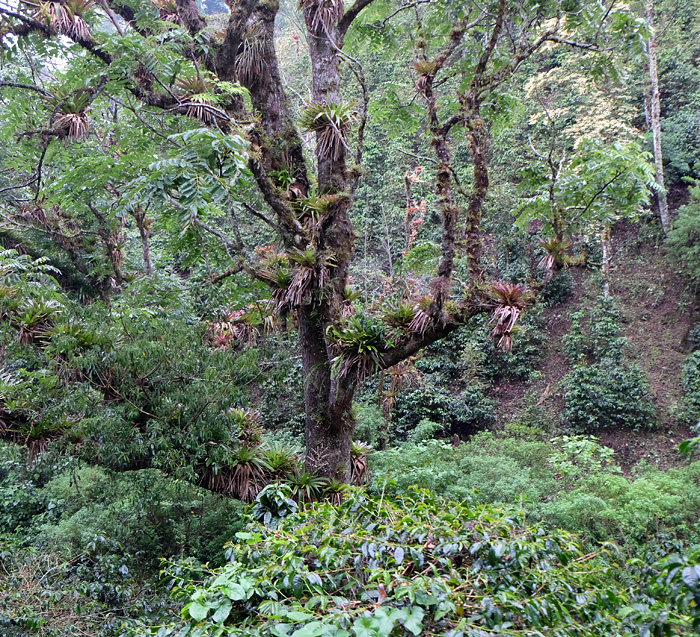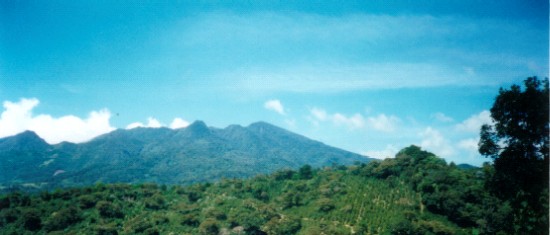About Panama Don Julian Pacamara Natural
Arrived late July 2025, new crop. This is a Direct Trade coffee received by airfreight, vacuum packed. It is always in short supply. This season's coffee is excellent and we are fortunate to have. Don Julian's Pacamara Natural is really hard to get, but we have a great relationship with the producer. A 100 pound lot of last season's coffee sold at the 2024 Best of Panama auction (8/8/24) for $208 per kilo ($94.55 per pound). Our pricing this year is slightly higher this year, main due to tariff.
This year was a favorable one for coffee from the Panama Highlands with generally decent crop size and characteristic quality. Don Julian's entire production of Pacamara Natural is extremely small, but we have a supply through our longstanding Direct Trade relationship
and friendship with the producer. Despite the small amount, the coffee is
delicious.
This Panama Pacamara happens to be one of our all time favorites. We were lucky enough to visit the farm a where this incredible coffee is grown a couple of times, and on arrival it is clear that the extraordinary taste of the coffee is the direct result of the extraordinary characteristics of the farm. At first perusal you might assume that you were walking through a nature preserve, where coffee trees are surrounded by other plants and enormous shade trees tower above. It is no accident that the farm feels this way; the owner, Mrs. Burneskis, thinks the farm should be left in as natural a state as possible. She has a level of respect and connectivity for the coffee plants that really comes to light when you walk through the sprawling greenery. Finca Don Julian is located about 1600 meters above sea level and grows their coffee in rich, black volcanic soil. The growing area being in a protected tropical rainforest gives the coffee a unique flavor, great acidity and bold body.
Pacamara is a hybrid of two coffee varietals: Pacas, which is a Bourbon mutation, and Maragogipe, which is a Typica mutation. It was developed in El Salvador in the mid-twentieth century. The mixture at its best produces very deep, brothy flavors that always seem reminiscent of dark fruit like plums, raisins and prunes. It is a natural processed coffee, a brief explanation of which is required to understand the terminology. This is what you might call a classic nattural. Coffee is fully ripened on the tree and once harvested is laid out on raised beds, sometimes called African beds, for drying. Drying is done rather slowly and requires frequent turnover of the cherries throughout the day to promote even drying and prevent mildew from forming. Don Julian has a new drying facility in Boquete. In it, the raised beds are under cover to protect the coffee from rain while drying. Coffee is also dried in full sun on tarps so there is no contact with the ground beneath.

Can you find the coffee trees in this preserve?
- Producer: Heakyung Kang Burneskis aka Annie Burneskis
- Province: Chiriqui
- District: Boquete
- Community: Horqueta
- Altitude: 1600 meters above sea level
- Coffee variety: Pacamara
- Processing: Classic Natural
- Farm: Finca Don Julian


View of the Horqueta Mountains with the Baru Volcano in the distance
Cup Characteristics: Very delicious example of Pacamara showing flavors of dried dates,
savory notes that evoke umami. Viscous body with a wine like and melony
finish. Fruit intensity is significant. Complex with a long and
memorable finish.
Roasting Notes: We like this coffee best when roasted 30 seconds to a minute past the end of 1st Crack. Pacamara coffees are pretty resilient beans, but keep in mind natural processed coffees tend to roast faster than washed coffees.

